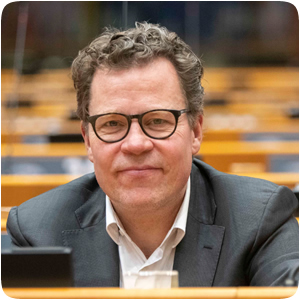 As the saying goes, the greenest energy is the energy we do not use. Yet, energy efficiency has always been the neglected stepchild of energy policy. While a 300 feet windmill makes up a great photo opportunity to demonstrate the progress of the climate agenda, isolation materials and thermostats fades in comparison.
As the saying goes, the greenest energy is the energy we do not use. Yet, energy efficiency has always been the neglected stepchild of energy policy. While a 300 feet windmill makes up a great photo opportunity to demonstrate the progress of the climate agenda, isolation materials and thermostats fades in comparison.
Likewise, energy efficiency has never been a topic capable of setting constituency meetings on fire, rather the exercise would be to avoid the audience drifting off. In short, energy efficiency has simply not been politically sexy. That is until now, of course.
When increasing EU energy efficiency by 1 percent corresponds to 2,6 percent less dependency on Russian gas imports, Brussels is listening. As Putin brutally invaded Ukraine, he also catapulted energy effi ciency onto the top-shelf European security policy.
Energy efficiency's new status as politically sexy was prominently featured in the European Parliament's adoption of the Energy Efficiency Directive earlier this month with its staggering 40 percent energy efficiency target. While the European Parliament surely is the institution to set the bar of EU climate policy high, this would have been unheard of in the beginning of the year.
The sad circumstances aside, it is extremely important that energy effi ciency has finally been brought to the centre of the stage. Without increased energy efficiency ambitions we will simply not achieve our climate targets in 2030, or 2050 for that matter.
A look at the numbers reveals the potential. Taking starting point in Europe's buildings, which are currently being targeted through the European Performance of Building Directive, a file I am active on, 40 percent of EU energy consumption stems from buildings. At the same time, 75 percent have poor energy performance. Heat, or cold for that matter, simply slips away through leaks in our buildings. It goes without saying that is waste we cannot afford.
According to the Commission's fit for 55 package, the target is to increase energy efficiency in buildings by 36 percent compared to 2007 levels. This does not only constitute a direct gain from energy savings. Reduced energy consumption in our buildings also requires less use of electricity, and consequently energy waste is reduced there as well.
Energy efficiency is the perfect complement to the establishing of renewables. Energy savings from, say, green renovation, is energy saved years on end. Thus, energy effi ciency makes the green transition easier, less extensive and cheaper. We will need less wind- and solar parks, which also reduces the demand for land use. This aspect is often overlooked, but can be of high importance in countries where land is scarce, and protests over the establishing of renewables are frequent. Public support of the green transition cannot and should not be taken for granted.
Finally, energy efficiency will create lots of jobs in construction and companies producing solutions for energy effi ciency, providing a boost to economy. However, there is a risk of energy efficiency being received counter intuitively across finance ministries in the Member States. Reduced energy consumption will, all else being equal, also mean less taxes, and that is an obstacle governments across Europe have to come to terms with, when developing national plans for energy efficiency.
In my opinion, the European Commission has done a good job so far in analysing the potential and mobilising funds for Europe's energy savings. On one account, I see the Commission fall short though. The potential of district heating and cooling is not highly estimated, while recent research from Aalborg University in Denmark suggests that district heating could potentially cover as much as 50 percent of Europe, primarily in urban areas. Moving from central to district heating implies massive energy savings, and there are potential synergy effects available by integrating district heating with ptx production and utilise the surplus heat from the ptx facility.
Nevertheless, energy efficiency in Europe is in a somewhat good place, now that Putin has reminded us all of energy savings being the only quick fix around that immediately reduces our dependency on his gas.